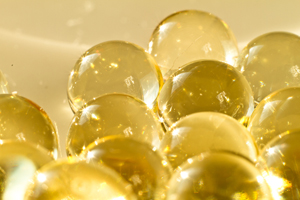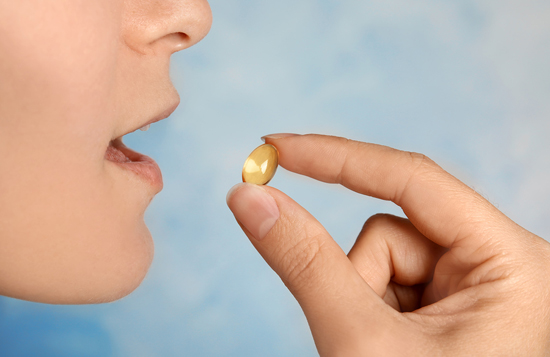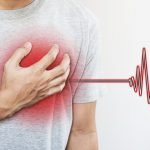Last newsletter, we talked about all the ways peer reviewed studies can produce misleading results. If you haven’t read it already, you might want to give it a look. Although we only had a handful of online comments on the newsletter (all positive), we had a large number of readers who took the time to write in saying how much they enjoyed it, including one email from a nationally known MD who called it, “Cool…(enlightening, and maddening…but cool).” Check it out.
All this is to say, I now want to look at two paired studies published late last year in the New England Journal of Medicine (NEJM) that got major play in the press–with the previous newsletter in mind.
According to the studies, many people regularly supplement with vitamin D and fish oil in the hopes of preventing cancer and heart disease. Also, according to the studies, the evidence in support of these benefits has been mixed, and that’s what the researchers attempted to address. Both trials involved the same group of 25,871 participants who were randomly separated into four groups. All participants were healthy adults age 50 and older of different racial and ethnic backgrounds with no history of cancer or heart disease who took part in the VITAL research project.
For five+ years, daily:
- One group of participants took 1 gram of fish oil plus 2,000 IU of vitamin D
- The second group supplemented with 2,000 IU of vitamin D plus a placebo
- The third group took 1 gram of fish oil plus a placebo
- The last group took two placebos
After more than five years, researchers were unable to find any overall benefit. Specifically:
- The vitamin D study concluded that: “Supplementation with vitamin D did not result in a lower incidence of invasive cancer or cardiovascular events than placebo.”1 JoAnn E. Manson, Nancy R. Cook, I-Min Lee, et al. “Vitamin D Supplements and Prevention of Cancer and Cardiovascular Disease.” N Engl J Med 2019; 380:33-44. http://www.nejm.org/doi/full/10.1056/NEJMoa1809944
- The fish oil study concluded that: “Supplementation with n−3 fatty acids did not result in a lower incidence of major cardiovascular events or cancer than placebo.”2 JoAnn E. Manson, Nancy R. Cook, I-Min Lee, et al. “Marine n-3 Fatty Acids and Prevention of Cardiovascular Disease and Cancer.” N Engl J Med 2019; 380:23-32. http://www.nejm.org/doi/full/10.1056/NEJMoa1811403
 These results were obviously less than positive. According to Dr. Lawrence Fine, chief of the clinical application and prevention branch of the National Heart, Lung, and Blood Institute, a part of the National Institutes of Health, which funded the studies, both trials were negative. “Overall, they showed that neither fish oil nor vitamin D actually lowered the incidence of heart disease or cancer.”3 “Large study sheds light on effectiveness of vitamin D, fish oil in preventing heart disease, cancer.” NIH. NHLBI IN THE PRESS. November 10, 2018. (Accessed 11 Jan 2019.) http://www.nhlbi.nih.gov/news/2018/large-study-sheds-light-effectiveness-vitamin-d-fish-oil-preventing-heart-disease-cancer
These results were obviously less than positive. According to Dr. Lawrence Fine, chief of the clinical application and prevention branch of the National Heart, Lung, and Blood Institute, a part of the National Institutes of Health, which funded the studies, both trials were negative. “Overall, they showed that neither fish oil nor vitamin D actually lowered the incidence of heart disease or cancer.”3 “Large study sheds light on effectiveness of vitamin D, fish oil in preventing heart disease, cancer.” NIH. NHLBI IN THE PRESS. November 10, 2018. (Accessed 11 Jan 2019.) http://www.nhlbi.nih.gov/news/2018/large-study-sheds-light-effectiveness-vitamin-d-fish-oil-preventing-heart-disease-cancer
Not surprisingly, the press was all over these results–mostly jumping on the vitamin D results–with headlines such as:
- “Vitamin D supplements don’t prevent heart disease or cancer.” ScienceNews.4 Marcia Frellick. “Vitamin D supplements don’t prevent heart disease or cancer.” ScienceNews. Nov 10, 2018. (Accessed 9 Jan 2019.) http://www.sciencenews.org/article/vitamin-d-supplements-do-not-prevent-heart-disease-or-cancer
- “Opinion: Doubts about benefits of Vitamin D and omega-3 supplements.” Montreal Gazette.5 Christopher Labos. “Opinion: Doubts about benefits of Vitamin D and omega-3 supplements.” Montreal Gazette Dec 13, 2018. (Accessed 9 Jan 2019.) http://montrealgazette.com/opinion/columnists/opinion-doubts-about-benefits-of-vitamin-d-and-omega-3-supplements
- “Trying to Prevent Cancer and Heart Disease? Skip the Vitamin D.” SciWorthy6 Caroline Vrana-Diaz. “Trying to Prevent Cancer and Heart Disease? Skip the Vitamin D.” SciWorthy. Dec 4, 1018. (Accessed 9 Jan 2019.) http://sciworthy.com/trying-to-prevent-cancer-and-heart-disease-skip-the-vitamin-d/
- “‘No evidence’ that vitamin D prevents cancer or heart attacks.” National Health Services.7 Bazian. “‘No evidence’ that vitamin D prevents cancer or heart attacks.” NHS. Nov 14 2018. (Accessed 9 Jan 2019.) http://www.nhs.uk/news/lifestyle-and-exercise/no-evidence-vitamin-d-prevents-cancer-or-heart-attacks/
Okay, by now you’re probably asking yourself, “What problem does Jon Barron have with these studies? How did they end up with such bogus results?” Surprise, in truth, I have no problem with the studies, the methodology, or the results. On the other hand, I do have a big-time problem with how those results were interpreted and presented so as to encourage the press to produce majorly misleading headlines and consumers to draw some majorly misleading conclusions about the value of vitamin D and fish oil supplements. And, with that in mind…
Fish Oil Supplements
In fact, the study results for fish oil were hardly as negative as you might be led to believe from the study’s conclusion and Dr. Fine’s comments. As it turned out, there was a beneficial effect when it came to one aspect of heart disease and fish oil–that being heart attacks! According to Dr. JoAnn Manson, the study’s lead researcher, analysis of a secondary endpoint, showed taking fish oil lowered the risk of heart attack by about 28 percent, which is a “statistically significant” finding. And let’s be clear, a 28 percent reduction in heart attacks is nothing to sneeze at.
Now, it should be understood that primary and secondary endpoints in studies are not the same thing. Because studies are not designed around secondary endpoints, they do not have the same authority as primary endpoints. The thinking is that if data is analyzed and re-analyzed enough times–as happens with a secondary endpoint–a positive result may occur purely by chance. But that said, when it comes to fish oil and heart attacks, the secondary endpoint does not exist in a vacuum. A number of other studies have come to similar conclusions, which means that the secondary endpoint results seen in this study are far more likely to be genuine as opposed to the result of chance.
It also needs to be noted that in a third study published in the same issue of the New England Journal of Medicine, patients were given a substance derived from fish oil, known as icosapent ethyl. The researchers found that patients given this substance were 25 percent less likely to die from heart disease, have a heart attack or stroke, be hospitalized for chest pain, or need procedures such as angioplasty, stenting, or bypass surgery. Given that icosapent ethyl is found in fish oil, these results provide further corroboration for the secondary endpoints found in the fish oil study that supplementation with fish oil is effective in protecting people from fatal heart attacks, strokes, and other forms of cardiovascular disease.8 Deepak L. Bhatt, P. Gabriel Steg, Michael Miller, et al. “Cardiovascular Risk Reduction with Icosapent Ethyl for Hypertriglyceridemia.” N Engl J Med 2019; 380:11-22. http://www.nejm.org/doi/full/10.1056/NEJMoa1812792
So, the bottom line with fish oil, and all omega-3 supplements for that matter, is that although they may have failed the primary endpoint criteria of one study, they are not useless when it comes to heart disease. And more importantly, heart disease is only one reason that people take omega-3 supplements–and even there, they can provide benefits that were not addressed in the study. Specifically, supplemental omega-3’s may:
 Help prevent and treat depression and anxiety. EPA (eicosapentaenoic acid), in particular, seems to be the most effective omega-3 fatty acid at fighting depression. Note: there are three types of omega-3 fatty acids: ALA (alpha-linolenic acid), EPA, and DHA (docosahexaenoic acid).9 Annie T.Ginty and Sarah M.Conklin. “Short-term supplementation of acute long-chain omega-3 polyunsaturated fatty acids may alter depression status and decrease symptomology among young adults with depression: A preliminary randomized and placebo controlled trial.” Psychiatry Research. Volume 229, Issues 1–2, 30 September 2015, Pages 485-489. http://www.sciencedirect.com/science/article/pii/S0165178115003844 , 10 Kuan-PinSu, Shih-Yi Huang,Chih-Chiang Chiu, Winston W.Shen. “Omega-3 fatty acids in major depressive disorder: A preliminary double-blind, placebo-controlled trial.” European Neuropsychopharmacology. Volume 13, Issue 4, August 2003, Pages 267-271. http://www.sciencedirect.com/science/article/pii/S0924977X03000324 , 11 Kiecolt-Glaser JK, Belury MA, Andridge R, Malarkey WB, Glaser R. “Omega-3 supplementation lowers inflammation and anxiety in medical students: a randomized controlled trial.” Brain Behav Immun. 2011 Nov;25(8):1725-34. http://www.ncbi.nlm.nih.gov/pmc/articles/PMC3191260/
Help prevent and treat depression and anxiety. EPA (eicosapentaenoic acid), in particular, seems to be the most effective omega-3 fatty acid at fighting depression. Note: there are three types of omega-3 fatty acids: ALA (alpha-linolenic acid), EPA, and DHA (docosahexaenoic acid).9 Annie T.Ginty and Sarah M.Conklin. “Short-term supplementation of acute long-chain omega-3 polyunsaturated fatty acids may alter depression status and decrease symptomology among young adults with depression: A preliminary randomized and placebo controlled trial.” Psychiatry Research. Volume 229, Issues 1–2, 30 September 2015, Pages 485-489. http://www.sciencedirect.com/science/article/pii/S0165178115003844 , 10 Kuan-PinSu, Shih-Yi Huang,Chih-Chiang Chiu, Winston W.Shen. “Omega-3 fatty acids in major depressive disorder: A preliminary double-blind, placebo-controlled trial.” European Neuropsychopharmacology. Volume 13, Issue 4, August 2003, Pages 267-271. http://www.sciencedirect.com/science/article/pii/S0924977X03000324 , 11 Kiecolt-Glaser JK, Belury MA, Andridge R, Malarkey WB, Glaser R. “Omega-3 supplementation lowers inflammation and anxiety in medical students: a randomized controlled trial.” Brain Behav Immun. 2011 Nov;25(8):1725-34. http://www.ncbi.nlm.nih.gov/pmc/articles/PMC3191260/ - Prevent macular degeneration. DHA, in particular, is a major structural component of your retinas.12 Merle BM, Benlian P, Puche N, Bassols A, et al. “Circulating omega-3 Fatty acids and neovascular age-related macular degeneration.” Invest Ophthalmol Vis Sci. 2014 Mar 28;55(3):2010-9. http://www.ncbi.nlm.nih.gov/pubmed/24557349 , 13 Lim LS, Mitchell P, Seddon JM, Holz FG, Wong TY. “Age-related macular degeneration.” Lancet. 2012 May 5;379(9827):1728-38. http://www.ncbi.nlm.nih.gov/pubmed/22559899/
- Stimulate brain growth and development in infants. Getting enough omega-3s during pregnancy and early life is crucial for your child’s development. Supplementing is linked to higher intelligence and a lower risk of several diseases.14 Helland IB, Smith L, Saarem K, Saugstad OD, Drevon CA. “Maternal supplementation with very-long-chain n-3 fatty acids during pregnancy and lactation augments children’s IQ at 4 years of age.” Pediatrics. 2003 Jan;111(1):e39-44. http://www.ncbi.nlm.nih.gov/pubmed/12509593/ , 15 Judge MP, Harel O, Lammi-Keefe CJ. “Maternal consumption of a docosahexaenoic acid-containing functional food during pregnancy: benefit for infant performance on problem-solving but not on recognition memory tasks at age 9 mo.” Am J Clin Nutr. 2007 Jun;85(6):1572-7. http://www.ncbi.nlm.nih.gov/pubmed/17556695 , 16 Strickland AD. “Prevention of cerebral palsy, autism spectrum disorder, and attention deficit-hyperactivity disorder.” Med Hypotheses. 2014 May;82(5):522-8. http://www.ncbi.nlm.nih.gov/pubmed/24581674
- Reduce production of the biochemicals linked to chronic inflammation.17 Calder PC. “n-3 polyunsaturated fatty acids, inflammation, and inflammatory diseases.” Am J Clin Nutr. 2006 Jun;83(6 Suppl):1505S-1519S. http://www.ncbi.nlm.nih.gov/pubmed/16841861 , 18 Li H, Ruan XZ, Powis SH, Fernando R, et al. “EPA and DHA reduce LPS-induced inflammation responses in HK-2 cells: evidence for a PPAR-gamma-dependent mechanism.” Kidney Int. 2005 Mar;67(3):867-74. http://www.ncbi.nlm.nih.gov/pubmed/15698426
- Mediate autoimmune diseases.19 Duffy EM, Meenagh GK, McMillan SA, et al. “The clinical effect of dietary supplementation with omega-3 fish oils and/or copper in systemic lupus erythematosus.” J Rheumatol. 2004 Aug;31(8):1551-6. http://www.ncbi.nlm.nih.gov/pubmed/15290734 , 20 Papadia C, Coruzzi A, Montana C, Di Mario F, Franzè A, Forbes A. “Omega-3 fatty acids in the maintenance of ulcerative colitis.” JRSM Short Rep. 2010 Jun 30;1(1):15. http://www.ncbi.nlm.nih.gov/pmc/articles/PMC2984332/ , 21 Berbert AA, Kondo CR, Almendra CL, Matsuo T, Dichi I. “Supplementation of fish oil and olive oil in patients with rheumatoid arthritis.” Nutrition. 2005 Feb;21(2):131-6. http://www.ncbi.nlm.nih.gov/pubmed/15723739 , 22 Balbás GM, Regaña MS, Millet PU. “Study on the use of omega-3 fatty acids as a therapeutic supplement in treatment of psoriasis.” Clin Cosmet Investig Dermatol. 2011;4:73-7. http://www.ncbi.nlm.nih.gov/pmc/articles/PMC3133503/
- Decrease age-related mental decline and reduce the risk of Alzheimer’s disease.23 Fotuhi M, Mohassel P, Yaffe K. “Fish consumption, long-chain omega-3 fatty acids and risk of cognitive decline or Alzheimer disease: a complex association.” Nat Clin Pract Neurol. 2009 Mar;5(3):140-52. http://www.ncbi.nlm.nih.gov/pubmed/19262590 , 24 Cole GM, Ma QL, Frautschy SA. “Omega-3 fatty acids and dementia.” Prostaglandins Leukot Essent Fatty Acids. 2009 Aug-Sep;81(2-3):213-21. http://www.ncbi.nlm.nih.gov/pmc/articles/PMC4019002/ , 25 Mohajeri MH, Troesch B, Weber P. “Inadequate supply of vitamins and DHA in the elderly: implications for brain aging and Alzheimer-type dementia.” Nutrition. 2015 Feb;31(2):261-75. http://www.ncbi.nlm.nih.gov/pubmed/25592004
- And, last but not least, improve numerous heart disease risk factors not covered by the study. We’re talking reduced triglycerides,26 Cazzola R, Russo-Volpe S, Miles EA, Rees D, et al. “Age- and dose-dependent effects of an eicosapentaenoic acid-rich oil on cardiovascular risk factors in healthy male subjects.” Atherosclerosis. 2007 Jul;193(1):159-67. http://www.ncbi.nlm.nih.gov/pubmed/16879829 , 27 Oliveira JM, Rondó PH. “Omega-3 fatty acids and hypertriglyceridemia in HIV-infected subjects on antiretroviral therapy: systematic review and meta-analysis.” HIV Clin Trials. 2011 Sep-Oct;12(5):268-74. http://www.ncbi.nlm.nih.gov/pubmed/22180524 , 28 Shidfar F, Keshavarz A, Hosseyni S, Ameri A, Yarahmadi S. “Effects of omega-3 fatty acid supplements on serum lipids, apolipoproteins and malondialdehyde in type 2 diabetes patients.” East Mediterr Health J. 2008 Mar-Apr;14(2):305-13. http://www.ncbi.nlm.nih.gov/pubmed/18561722 lower blood pressure,29 Cazzola , 30 Ramel A, Martinez JA, Kiely M, Bandarra NM, Thorsdottir I. “Moderate consumption of fatty fish reduces diastolic blood pressure in overweight and obese European young adults during energy restriction.” Nutrition. 2010 Feb;26(2):168-74. http://www.ncbi.nlm.nih.gov/pubmed/19487105 raising HDL (the good cholesterol),31 Eslick GD, Howe PR, Smith C, Priest R, Bensoussan A. “Benefits of fish oil supplementation in hyperlipidemia: a systematic review and meta-analysis.” Int J Cardiol. 2009 Jul 24;136(1):4-16. http://www.ncbi.nlm.nih.gov/pubmed/18774613 , 32 Bernstein AM, Ding EL, Willett WC, Rimm EB. “A meta-analysis shows that docosahexaenoic acid from algal oil reduces serum triglycerides and increases HDL-cholesterol and LDL-cholesterol in persons without coronary heart disease.” J Nutr. 2012 Jan;142(1):99-104. http://www.ncbi.nlm.nih.gov/pubmed/22113870 , 33 Warner JG Jr, Ullrich IH, Albrink MJ, Yeater RA. “Combined effects of aerobic exercise and omega-3 fatty acids in hyperlipidemic persons.” Med Sci Sports Exerc. 1989 Oct;21(5):498-505. http://www.ncbi.nlm.nih.gov/pubmed/2691812 reducing harmful blood clots,34 Marchioli R, Barzi F, Bomba E, Chieffo C, et al. “Early protection against sudden death by n-3 polyunsaturated fatty acids after myocardial infarction: time-course analysis of the results of the Gruppo Italiano per lo Studio della Sopravvivenza nell’Infarto Miocardico (GISSI)-Prevenzione.” Circulation. 2002 Apr 23;105(16):1897-903. http://www.ncbi.nlm.nih.gov/pubmed/11997274 , 35 Singh RB, Dubnov G, Niaz MA, Ghosh S, et al. “Effect of an Indo-Mediterranean diet on progression of coronary artery disease in high risk patients (Indo-Mediterranean Diet Heart Study): a randomised single-blind trial.” Lancet. 2002 Nov 9;360(9344):1455-61. http://www.ncbi.nlm.nih.gov/pubmed/12433513 mitigating arterial plaque,36 Wang Q, Liang X, Wang L, Lu X, Huang J, Cao J, Li H, Gu D. “Effect of omega-3 fatty acids supplementation on endothelial function: a meta-analysis of randomized controlled trials.” Atherosclerosis. 2012 Apr;221(2):536-43. http://www.ncbi.nlm.nih.gov/pubmed/22317966 , 37 Miyoshi T, Noda Y, Ohno Y, Sugiyama H, et al. “Omega-3 fatty acids improve postprandial lipemia and associated endothelial dysfunction in healthy individuals – a randomized cross-over trial.” Biomed Pharmacother. 2014 Oct;68(8):1071-7. http://www.ncbi.nlm.nih.gov/pubmed/25458786 and lowering arterial inflammation.38 Ciubotaru I, Lee YS, Wander RC. “Dietary fish oil decreases C-reactive protein, interleukin-6, and triacylglycerol to HDL-cholesterol ratio in postmenopausal women on HRT.” J Nutr Biochem. 2003 Sep;14(9):513-21. http://www.ncbi.nlm.nih.gov/pubmed/14505813 , 39 Thusgaard M, Christensen JH, Mørn B, Andersen TS, Vige R, et al. “Effect of fish oil (n-3 polyunsaturated fatty acids) on plasma lipids, lipoproteins and inflammatory markers in HIV-infected patients treated with antiretroviral therapy: a randomized, double-blind, placebo-controlled study.” Scand J Infect Dis. 2009;41(10):760-6. http://www.ncbi.nlm.nih.gov/pubmed/19685375 , 40 Rizza S, Tesauro M, Cardillo C, Galli A, Iantorno M, et al. “Fish oil supplementation improves endothelial function in normoglycemic offspring of patients with type 2 diabetes.” Atherosclerosis. 2009 Oct;206(2):569-74. http://www.ncbi.nlm.nih.gov/pubmed/19394939
That’s 30 studies showing the benefits of supplementing with omega-3 fatty acids. It would hardly seem to be a useless supplement. And remember, we supplement with omega-3 fatty acids to balance out our excessive intake of omega-6 fatty acids resulting from the medical community’s misguided promotion of polyunsaturated vegetable oils. An excess of polyunsaturated fats in the diet leads to a build-up of NEFAs (Non-Esterfied Fatty Acids) in the blood. And high levels of NEFAs have been associated with heart attacks. Supplement with omega-3’s, and you lower your NEFAs. All of the health benefits associated with omega-3’s are the result of balancing out that excess. If you’re following a healthy Mediterranean diet and therefore not consuming excessive omega-6’s, then only minimal supplementation with omega-3’s is required.
And finally, remember that different sources of omega-3’s provide different benefits.
- Fish oil is good because it is already broken down into the forms of Omega-3 fatty acids that your body can use–EPA and DHA–especially for heart health.
- Flax oil’s Omega-3 fatty acid comes in the form of alpha-linolenic acid, which your body breaks down into EPA and DHA. For most people, this is not a problem. For some it is. On the other hand, flax oil is high in lignans, phytochemicals shown to have significant anti-cancer properties.
- And while you’re at it, don’t forget Krill oil. Krill are small shrimp-like creatures. Their oil contains phospholipids specially integrated with omega-3 essential fatty acids. This unique structure provides important cell membrane building blocks in the ratios used by the body and may be far better utilized than standalone phospholipids or other omega-3 oils.
Vitamin D Supplements
 To repeat, the NEJM vitamin D study concluded that: “Supplementation with vitamin D did not result in a lower incidence of invasive cancer or cardiovascular events than placebo. That’s pretty damning except for the fact that it may not be correct, but even if it is, it’s highly misleading.
To repeat, the NEJM vitamin D study concluded that: “Supplementation with vitamin D did not result in a lower incidence of invasive cancer or cardiovascular events than placebo. That’s pretty damning except for the fact that it may not be correct, but even if it is, it’s highly misleading.
You can certainly question the correctness of its cancer conclusions for two reasons. First, the study itself noted that over the follow-up period, there were 341 deaths from cancer: 154 among participants who took vitamin D (1.1%) and 187 among those who took the placebo (1.4%). Although this difference represents 21% higher levels for the non-vitamin D group, it was deemed not statistically significant. It also should be noted that the researchers reported that the difference in cancer deaths between the groups started to widen over time. Now, add to that the numerous studies that have indicated that supplemental vitamin D does indeed lower your risk of cancer, and the misleading aspects of the NEJM study begin to become apparent. For example:
According to a study of over 5,000 postmenopausal women published in PLoS One just last June, vitamin D concentrations of 60 ng/mL or higher in blood plasma significantly reduced the risk for breast cancer among postmenopausal women.41 McDonnell SL, Baggerly CA, French CB, et al. “Breast cancer risk markedly lower with serum 25-hydroxyvitamin D concentrations =60 vs <20 ng/ml (150 vs 50 nmol/L): Pooled analysis of two randomized trials and a prospective cohort.” PLoS One. 2018 Jun 15;13(6):e0199265. http://www.ncbi.nlm.nih.gov/pmc/articles/PMC6003691/ Specifically, women with vitamin D levels of 60 ng/mL or more demonstrated an astonishing 82% lower risk for breast cancer, compared with those with vitamin D levels lower than 20 ng/mL (RR = 0.18). Take note that participants in the NEJM study supplemented with 2,000 IU of vitamin D a day, which will bring most people’s vitamin D blood level up to about 33 ng/mL. The Plos One study, on the other hand, pushed blood levels to almost double that at 60 ng/mL. You can draw your own conclusions as to what that means and what the value of vitamin D is when it comes to cancer.
But cancer aside, the far bigger problem I have with the NEJM study is that It’s misleading in the sense that most people don’t supplement with vitamin D to prevent heart disease and cancer. They use vitamin D for bone health and to optimize immune function. Yes, there are studies that show that if your vitamin D levels are too low, it makes you more prone to cancer, but that’s not the same thing as saying that any intake marginally beyond the RDI will offer any anticancer benefits. (As we saw, the Plos One study had to go significantly beyond RDI levels.) Regardless of levels, though, condemning vitamin D because it doesn’t prevent heart disease or cancer is a bit like condemning LeBron James because he’s not a great NFL quarterback. He happens to be one of the greatest basketball players of all time, but he doesn’t play football. That’s not to say he couldn’t. There’s nothing wrong with testing him to see if he can. Some people do play two or three sports well, but if he can’t, it doesn’t mean he isn’t a great basketball player. And just because vitamin D may or may not prevent heart disease and/or cancer, doesn’t mean it isn’t a crucial supplement for bone health and immune system support.
It’s also worth keeping in mind that up to 41.6% of the adult population in the US has a vitamin D deficiency (less than 20 ng/mL in their blood) according to a 2010 study,42 Forrest KY, Stuhldreher WL. “Prevalence and correlates of vitamin D deficiency in US adults.” Nutr Res. 2011 Jan;31(1):48-54. http://www.ncbi.nlm.nih.gov/pubmed/21310306 which correlates to a lot of chronic diseases that could be easily managed with supplementation. Incidentally, a 2012 study published in Osteoporosis International recruited patients with vitamin D levels less than 20 ng/ml and put half of them on 5,000 IU/day and half on 2,000 IU/day for three months.43 Diamond T, Wong YK, Golombick T. “Effect of oral cholecalciferol 2,000 versus 5,000 IU on serum vitamin D, PTH, bone and muscle strength in patients with vitamin D deficiency.” Osteoporos Int. 2012 Mar 16. http://www.ncbi.nlm.nih.gov/pubmed/22422304 After 3 months of 2,000 IU/day, the vitamin D levels averaged 30 ng/ml, meaning about half the patients were still vitamin D deficient. Not so with the 5,000 IU/day group. The average vitamin D level was 45 ng/ml (114 nmol/L), right in the “natural range.” You can see how the NEJM study with 2,000 IU a day is going to come well short of 60 ng/ml a day, which is where the anti-cancer benefits seem to be most pronounced. Just saying.
So, How Did We Get Here?
 As I stated near the top of this newsletter, I have no problem with the NEJM studies, the methodology they use, or the results they saw. They are what they are. On the other hand, I do have a big time problem with how those results were presented, which encouraged the press to produce majorly misleading headlines, and consumers to draw some majorly misleading conclusions about the value of vitamin D and fish oil supplementation.
As I stated near the top of this newsletter, I have no problem with the NEJM studies, the methodology they use, or the results they saw. They are what they are. On the other hand, I do have a big time problem with how those results were presented, which encouraged the press to produce majorly misleading headlines, and consumers to draw some majorly misleading conclusions about the value of vitamin D and fish oil supplementation.
So, now you should have a better idea as to why I have a problem with the NEJM presentation of the studies’ conclusions. But to make it extra clear, I believe we ended up here as the result of three interrelated and connected events.
- First, although the studies themselves came to valid conclusions based on the parameters established for the studies, the authors did a terrible job creating context for those parameters and then limiting their conclusions to those parameters. In other words, although their studies were designed to only apply to a set of very limited parameters for the use of fish oil and vitamin D, they made no attempt to keep their conclusions within those parameters–thus allowing people to think they were far more wide ranging than they actually were.
- Dr. Fine then speaking on behalf of the NIH, which funded the studies, also chose to ignore the limiting parameters and provided the press with an all-encompassing and therefore grossly misleading soundbite. To repeat, “Overall, they showed that neither fish oil nor vitamin D actually lowered the incidence of heart disease or cancer.” That statement, quite simply, goes well beyond the limits of the studies.
- And the press, as we have explained in previous newsletters, is no longer in the business of evaluating studies–but rather merely passing on write ups they are given to their readers and/or viewers while adding the most attention grabbing headlines possible. Thus, they embraced the false conclusions presented in the studies ala ScienceNews, “Vitamin D supplements don’t prevent heart disease or cancer.”
So, there are three bottom lines to walk away with here.
- Although the studies passed peer review, they do not accurately or completely represent the reality of supplementing with vitamin D and fish oil. How can that be? And the answer is that peer review doesn’t mean what most people think it means. Peer review doesn’t guarantee that a study is “proven” true or factual. It merely means that the research methodology meets academic standards and the published report meets the editorial standards of the journal that publishes it. It’s a little like gaining access to a Victorian gentlemen’s club. Getting through the front door doesn’t mean that you’re a gentleman–merely that you look like one.
- So yes, yet again, peer reviewed studies find a way to misrepresent reality.
- And unless some new information emerges in the future, you should probably continue to supplement with vitamin D and fish oil–expecting and receiving a whole series of positive health benefits.

References
| ↑1 | JoAnn E. Manson, Nancy R. Cook, I-Min Lee, et al. “Vitamin D Supplements and Prevention of Cancer and Cardiovascular Disease.” N Engl J Med 2019; 380:33-44. http://www.nejm.org/doi/full/10.1056/NEJMoa1809944 |
|---|---|
| ↑2 | JoAnn E. Manson, Nancy R. Cook, I-Min Lee, et al. “Marine n-3 Fatty Acids and Prevention of Cardiovascular Disease and Cancer.” N Engl J Med 2019; 380:23-32. http://www.nejm.org/doi/full/10.1056/NEJMoa1811403 |
| ↑3 | “Large study sheds light on effectiveness of vitamin D, fish oil in preventing heart disease, cancer.” NIH. NHLBI IN THE PRESS. November 10, 2018. (Accessed 11 Jan 2019.) http://www.nhlbi.nih.gov/news/2018/large-study-sheds-light-effectiveness-vitamin-d-fish-oil-preventing-heart-disease-cancer |
| ↑4 | Marcia Frellick. “Vitamin D supplements don’t prevent heart disease or cancer.” ScienceNews. Nov 10, 2018. (Accessed 9 Jan 2019.) http://www.sciencenews.org/article/vitamin-d-supplements-do-not-prevent-heart-disease-or-cancer |
| ↑5 | Christopher Labos. “Opinion: Doubts about benefits of Vitamin D and omega-3 supplements.” Montreal Gazette Dec 13, 2018. (Accessed 9 Jan 2019.) http://montrealgazette.com/opinion/columnists/opinion-doubts-about-benefits-of-vitamin-d-and-omega-3-supplements |
| ↑6 | Caroline Vrana-Diaz. “Trying to Prevent Cancer and Heart Disease? Skip the Vitamin D.” SciWorthy. Dec 4, 1018. (Accessed 9 Jan 2019.) http://sciworthy.com/trying-to-prevent-cancer-and-heart-disease-skip-the-vitamin-d/ |
| ↑7 | Bazian. “‘No evidence’ that vitamin D prevents cancer or heart attacks.” NHS. Nov 14 2018. (Accessed 9 Jan 2019.) http://www.nhs.uk/news/lifestyle-and-exercise/no-evidence-vitamin-d-prevents-cancer-or-heart-attacks/ |
| ↑8 | Deepak L. Bhatt, P. Gabriel Steg, Michael Miller, et al. “Cardiovascular Risk Reduction with Icosapent Ethyl for Hypertriglyceridemia.” N Engl J Med 2019; 380:11-22. http://www.nejm.org/doi/full/10.1056/NEJMoa1812792 |
| ↑9 | Annie T.Ginty and Sarah M.Conklin. “Short-term supplementation of acute long-chain omega-3 polyunsaturated fatty acids may alter depression status and decrease symptomology among young adults with depression: A preliminary randomized and placebo controlled trial.” Psychiatry Research. Volume 229, Issues 1–2, 30 September 2015, Pages 485-489. http://www.sciencedirect.com/science/article/pii/S0165178115003844 |
| ↑10 | Kuan-PinSu, Shih-Yi Huang,Chih-Chiang Chiu, Winston W.Shen. “Omega-3 fatty acids in major depressive disorder: A preliminary double-blind, placebo-controlled trial.” European Neuropsychopharmacology. Volume 13, Issue 4, August 2003, Pages 267-271. http://www.sciencedirect.com/science/article/pii/S0924977X03000324 |
| ↑11 | Kiecolt-Glaser JK, Belury MA, Andridge R, Malarkey WB, Glaser R. “Omega-3 supplementation lowers inflammation and anxiety in medical students: a randomized controlled trial.” Brain Behav Immun. 2011 Nov;25(8):1725-34. http://www.ncbi.nlm.nih.gov/pmc/articles/PMC3191260/ |
| ↑12 | Merle BM, Benlian P, Puche N, Bassols A, et al. “Circulating omega-3 Fatty acids and neovascular age-related macular degeneration.” Invest Ophthalmol Vis Sci. 2014 Mar 28;55(3):2010-9. http://www.ncbi.nlm.nih.gov/pubmed/24557349 |
| ↑13 | Lim LS, Mitchell P, Seddon JM, Holz FG, Wong TY. “Age-related macular degeneration.” Lancet. 2012 May 5;379(9827):1728-38. http://www.ncbi.nlm.nih.gov/pubmed/22559899/ |
| ↑14 | Helland IB, Smith L, Saarem K, Saugstad OD, Drevon CA. “Maternal supplementation with very-long-chain n-3 fatty acids during pregnancy and lactation augments children’s IQ at 4 years of age.” Pediatrics. 2003 Jan;111(1):e39-44. http://www.ncbi.nlm.nih.gov/pubmed/12509593/ |
| ↑15 | Judge MP, Harel O, Lammi-Keefe CJ. “Maternal consumption of a docosahexaenoic acid-containing functional food during pregnancy: benefit for infant performance on problem-solving but not on recognition memory tasks at age 9 mo.” Am J Clin Nutr. 2007 Jun;85(6):1572-7. http://www.ncbi.nlm.nih.gov/pubmed/17556695 |
| ↑16 | Strickland AD. “Prevention of cerebral palsy, autism spectrum disorder, and attention deficit-hyperactivity disorder.” Med Hypotheses. 2014 May;82(5):522-8. http://www.ncbi.nlm.nih.gov/pubmed/24581674 |
| ↑17 | Calder PC. “n-3 polyunsaturated fatty acids, inflammation, and inflammatory diseases.” Am J Clin Nutr. 2006 Jun;83(6 Suppl):1505S-1519S. http://www.ncbi.nlm.nih.gov/pubmed/16841861 |
| ↑18 | Li H, Ruan XZ, Powis SH, Fernando R, et al. “EPA and DHA reduce LPS-induced inflammation responses in HK-2 cells: evidence for a PPAR-gamma-dependent mechanism.” Kidney Int. 2005 Mar;67(3):867-74. http://www.ncbi.nlm.nih.gov/pubmed/15698426 |
| ↑19 | Duffy EM, Meenagh GK, McMillan SA, et al. “The clinical effect of dietary supplementation with omega-3 fish oils and/or copper in systemic lupus erythematosus.” J Rheumatol. 2004 Aug;31(8):1551-6. http://www.ncbi.nlm.nih.gov/pubmed/15290734 |
| ↑20 | Papadia C, Coruzzi A, Montana C, Di Mario F, Franzè A, Forbes A. “Omega-3 fatty acids in the maintenance of ulcerative colitis.” JRSM Short Rep. 2010 Jun 30;1(1):15. http://www.ncbi.nlm.nih.gov/pmc/articles/PMC2984332/ |
| ↑21 | Berbert AA, Kondo CR, Almendra CL, Matsuo T, Dichi I. “Supplementation of fish oil and olive oil in patients with rheumatoid arthritis.” Nutrition. 2005 Feb;21(2):131-6. http://www.ncbi.nlm.nih.gov/pubmed/15723739 |
| ↑22 | Balbás GM, Regaña MS, Millet PU. “Study on the use of omega-3 fatty acids as a therapeutic supplement in treatment of psoriasis.” Clin Cosmet Investig Dermatol. 2011;4:73-7. http://www.ncbi.nlm.nih.gov/pmc/articles/PMC3133503/ |
| ↑23 | Fotuhi M, Mohassel P, Yaffe K. “Fish consumption, long-chain omega-3 fatty acids and risk of cognitive decline or Alzheimer disease: a complex association.” Nat Clin Pract Neurol. 2009 Mar;5(3):140-52. http://www.ncbi.nlm.nih.gov/pubmed/19262590 |
| ↑24 | Cole GM, Ma QL, Frautschy SA. “Omega-3 fatty acids and dementia.” Prostaglandins Leukot Essent Fatty Acids. 2009 Aug-Sep;81(2-3):213-21. http://www.ncbi.nlm.nih.gov/pmc/articles/PMC4019002/ |
| ↑25 | Mohajeri MH, Troesch B, Weber P. “Inadequate supply of vitamins and DHA in the elderly: implications for brain aging and Alzheimer-type dementia.” Nutrition. 2015 Feb;31(2):261-75. http://www.ncbi.nlm.nih.gov/pubmed/25592004 |
| ↑26 | Cazzola R, Russo-Volpe S, Miles EA, Rees D, et al. “Age- and dose-dependent effects of an eicosapentaenoic acid-rich oil on cardiovascular risk factors in healthy male subjects.” Atherosclerosis. 2007 Jul;193(1):159-67. http://www.ncbi.nlm.nih.gov/pubmed/16879829 |
| ↑27 | Oliveira JM, Rondó PH. “Omega-3 fatty acids and hypertriglyceridemia in HIV-infected subjects on antiretroviral therapy: systematic review and meta-analysis.” HIV Clin Trials. 2011 Sep-Oct;12(5):268-74. http://www.ncbi.nlm.nih.gov/pubmed/22180524 |
| ↑28 | Shidfar F, Keshavarz A, Hosseyni S, Ameri A, Yarahmadi S. “Effects of omega-3 fatty acid supplements on serum lipids, apolipoproteins and malondialdehyde in type 2 diabetes patients.” East Mediterr Health J. 2008 Mar-Apr;14(2):305-13. http://www.ncbi.nlm.nih.gov/pubmed/18561722 |
| ↑29 | Cazzola |
| ↑30 | Ramel A, Martinez JA, Kiely M, Bandarra NM, Thorsdottir I. “Moderate consumption of fatty fish reduces diastolic blood pressure in overweight and obese European young adults during energy restriction.” Nutrition. 2010 Feb;26(2):168-74. http://www.ncbi.nlm.nih.gov/pubmed/19487105 |
| ↑31 | Eslick GD, Howe PR, Smith C, Priest R, Bensoussan A. “Benefits of fish oil supplementation in hyperlipidemia: a systematic review and meta-analysis.” Int J Cardiol. 2009 Jul 24;136(1):4-16. http://www.ncbi.nlm.nih.gov/pubmed/18774613 |
| ↑32 | Bernstein AM, Ding EL, Willett WC, Rimm EB. “A meta-analysis shows that docosahexaenoic acid from algal oil reduces serum triglycerides and increases HDL-cholesterol and LDL-cholesterol in persons without coronary heart disease.” J Nutr. 2012 Jan;142(1):99-104. http://www.ncbi.nlm.nih.gov/pubmed/22113870 |
| ↑33 | Warner JG Jr, Ullrich IH, Albrink MJ, Yeater RA. “Combined effects of aerobic exercise and omega-3 fatty acids in hyperlipidemic persons.” Med Sci Sports Exerc. 1989 Oct;21(5):498-505. http://www.ncbi.nlm.nih.gov/pubmed/2691812 |
| ↑34 | Marchioli R, Barzi F, Bomba E, Chieffo C, et al. “Early protection against sudden death by n-3 polyunsaturated fatty acids after myocardial infarction: time-course analysis of the results of the Gruppo Italiano per lo Studio della Sopravvivenza nell’Infarto Miocardico (GISSI)-Prevenzione.” Circulation. 2002 Apr 23;105(16):1897-903. http://www.ncbi.nlm.nih.gov/pubmed/11997274 |
| ↑35 | Singh RB, Dubnov G, Niaz MA, Ghosh S, et al. “Effect of an Indo-Mediterranean diet on progression of coronary artery disease in high risk patients (Indo-Mediterranean Diet Heart Study): a randomised single-blind trial.” Lancet. 2002 Nov 9;360(9344):1455-61. http://www.ncbi.nlm.nih.gov/pubmed/12433513 |
| ↑36 | Wang Q, Liang X, Wang L, Lu X, Huang J, Cao J, Li H, Gu D. “Effect of omega-3 fatty acids supplementation on endothelial function: a meta-analysis of randomized controlled trials.” Atherosclerosis. 2012 Apr;221(2):536-43. http://www.ncbi.nlm.nih.gov/pubmed/22317966 |
| ↑37 | Miyoshi T, Noda Y, Ohno Y, Sugiyama H, et al. “Omega-3 fatty acids improve postprandial lipemia and associated endothelial dysfunction in healthy individuals – a randomized cross-over trial.” Biomed Pharmacother. 2014 Oct;68(8):1071-7. http://www.ncbi.nlm.nih.gov/pubmed/25458786 |
| ↑38 | Ciubotaru I, Lee YS, Wander RC. “Dietary fish oil decreases C-reactive protein, interleukin-6, and triacylglycerol to HDL-cholesterol ratio in postmenopausal women on HRT.” J Nutr Biochem. 2003 Sep;14(9):513-21. http://www.ncbi.nlm.nih.gov/pubmed/14505813 |
| ↑39 | Thusgaard M, Christensen JH, Mørn B, Andersen TS, Vige R, et al. “Effect of fish oil (n-3 polyunsaturated fatty acids) on plasma lipids, lipoproteins and inflammatory markers in HIV-infected patients treated with antiretroviral therapy: a randomized, double-blind, placebo-controlled study.” Scand J Infect Dis. 2009;41(10):760-6. http://www.ncbi.nlm.nih.gov/pubmed/19685375 |
| ↑40 | Rizza S, Tesauro M, Cardillo C, Galli A, Iantorno M, et al. “Fish oil supplementation improves endothelial function in normoglycemic offspring of patients with type 2 diabetes.” Atherosclerosis. 2009 Oct;206(2):569-74. http://www.ncbi.nlm.nih.gov/pubmed/19394939 |
| ↑41 | McDonnell SL, Baggerly CA, French CB, et al. “Breast cancer risk markedly lower with serum 25-hydroxyvitamin D concentrations =60 vs <20 ng/ml (150 vs 50 nmol/L): Pooled analysis of two randomized trials and a prospective cohort.” PLoS One. 2018 Jun 15;13(6):e0199265. http://www.ncbi.nlm.nih.gov/pmc/articles/PMC6003691/ |
| ↑42 | Forrest KY, Stuhldreher WL. “Prevalence and correlates of vitamin D deficiency in US adults.” Nutr Res. 2011 Jan;31(1):48-54. http://www.ncbi.nlm.nih.gov/pubmed/21310306 |
| ↑43 | Diamond T, Wong YK, Golombick T. “Effect of oral cholecalciferol 2,000 versus 5,000 IU on serum vitamin D, PTH, bone and muscle strength in patients with vitamin D deficiency.” Osteoporos Int. 2012 Mar 16. http://www.ncbi.nlm.nih.gov/pubmed/22422304 |












is a heart attack not considered a “significant cardiac event”?